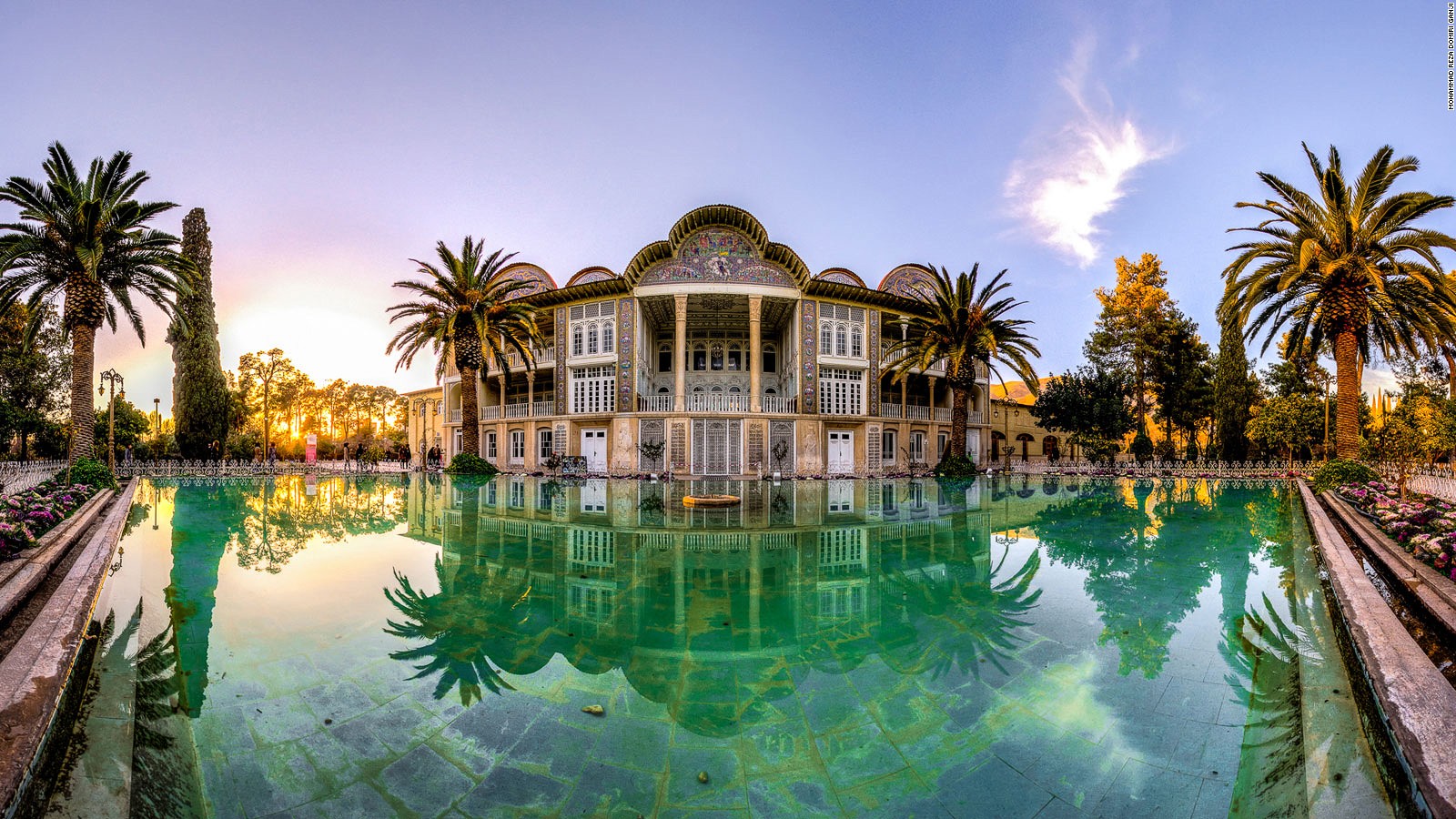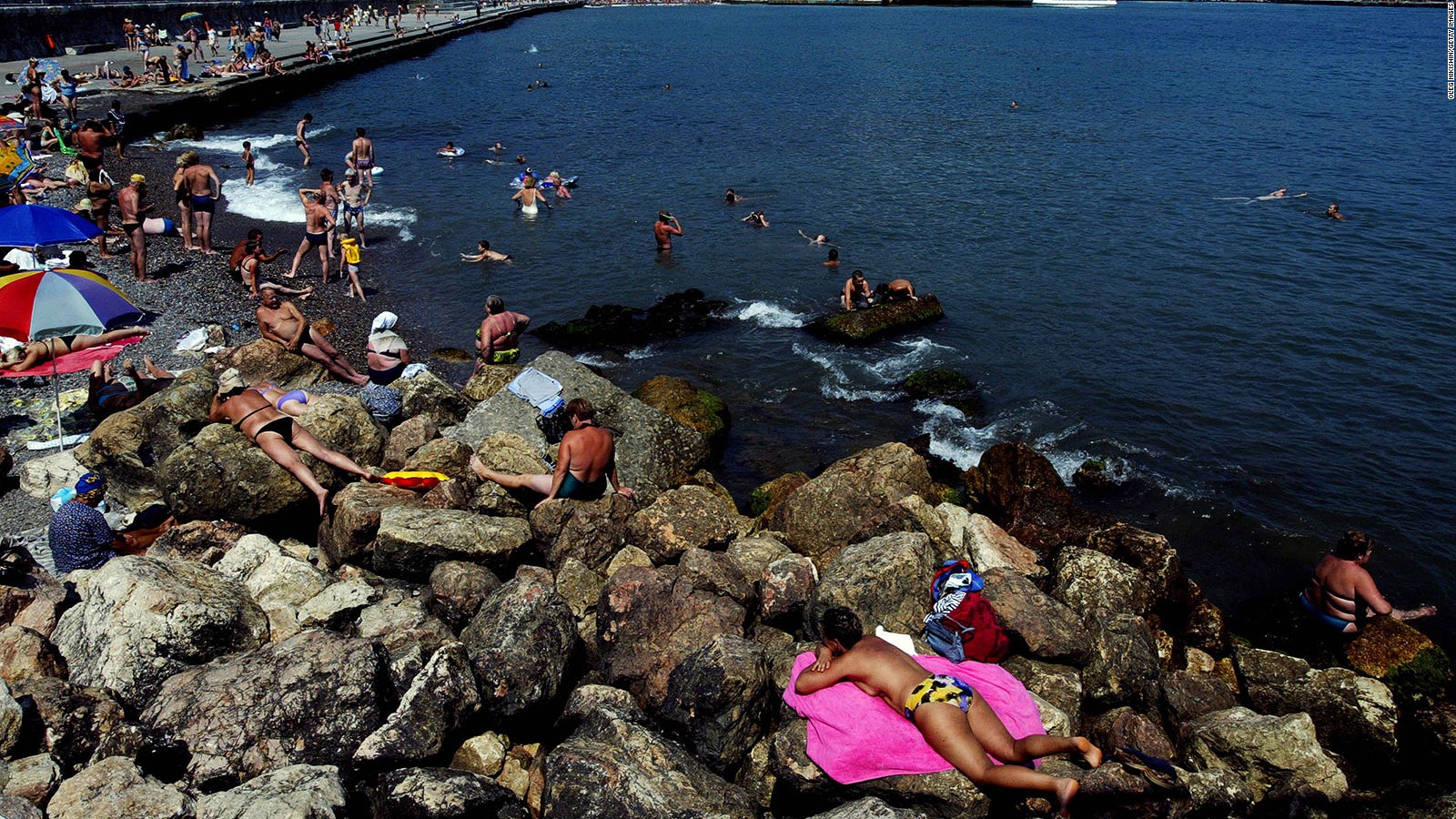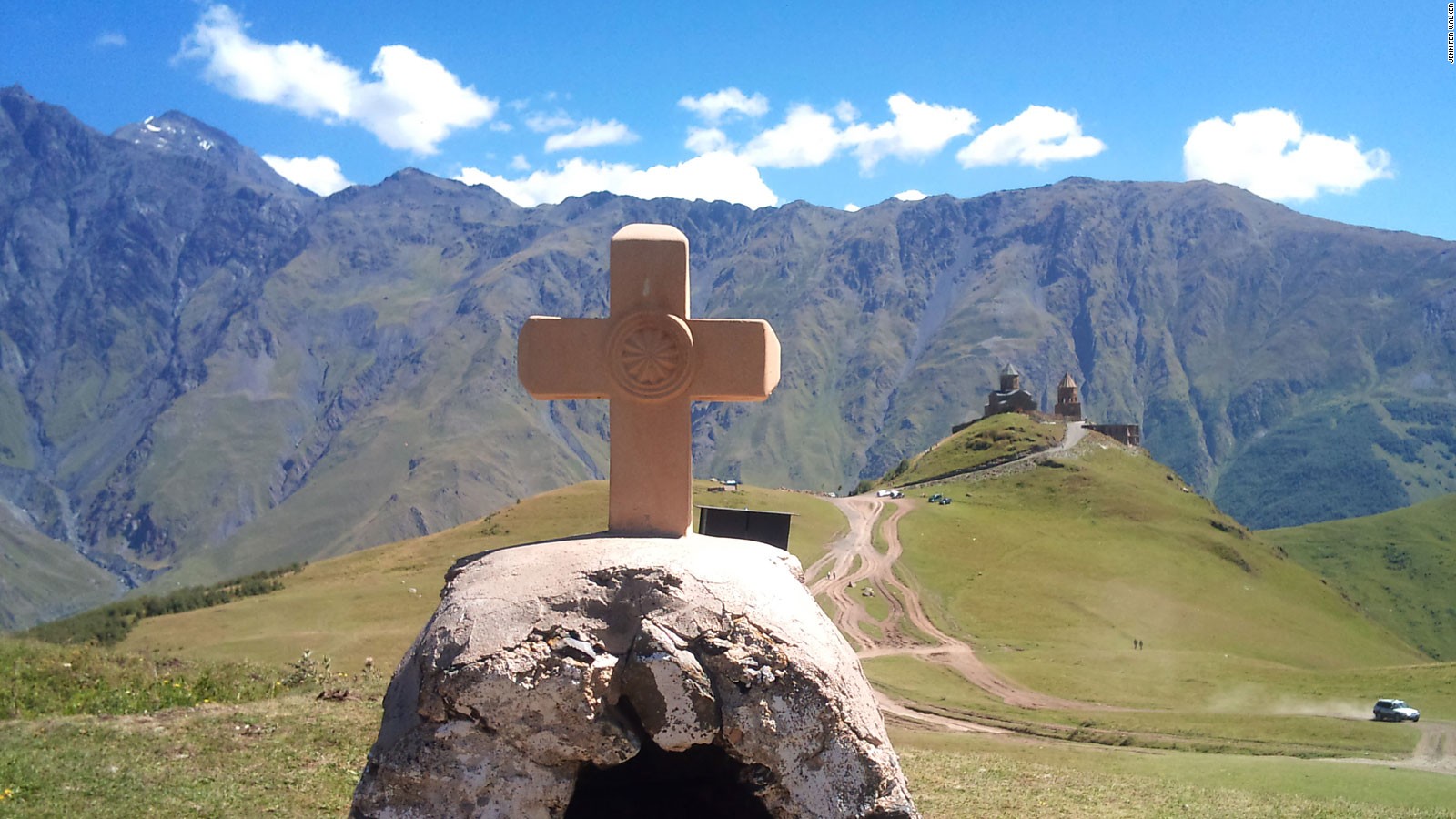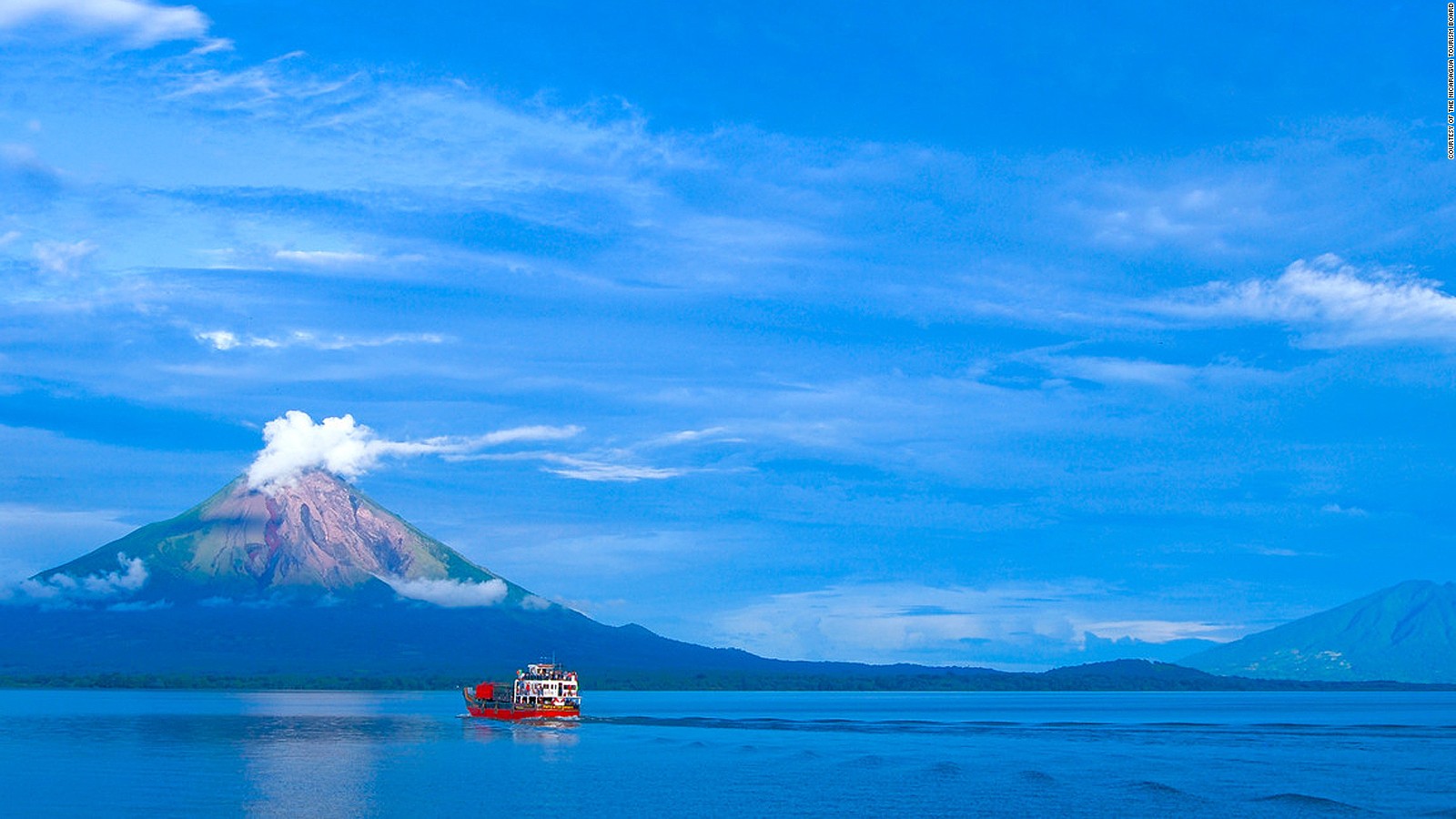At the time it was hard to imagine any of those places would become the popular vacation spots they are today.
Conflict will end, repressive regimes will fall, environments will change.
Predicting which -- and when -- is the tricky part.
But here are eight destinations with amazing offerings that might one day be open to the world.
IraqWith a glorious past heavily overshadowed by more than a decade of conflict, Iraq's tourist sites were for a while best known for the looting that ravaged museums after the U.S. invasion.
But the country has begun taking steps to revive its appeal for travelers, even as it deals with the current threat from ISIS.
Nearly one million tourists came to Iraq last year, according to the World Travel and Tourism Council.
That's expected to more than double to 2.3 million in 2025.
Many are religious pilgrims, but Iraq could draw tourists to its secular sites as well.
The Arch of Ctesiphon south of Baghdad is the last remnant of a Persian capital.
It's among the first of the government's efforts to restore ancient sites in hopes of attracting more tourists.
The wetlands of the Tigris and Euphrates, taught in schoolbooks as the birthplace of civilization, were drained by Saddam Hussein but are being restored with an eye toward eco-tourism.
Azzam Alwash, the environmentalist behind the restoration project, relentlessly promotes the region's potential.
"You have to dream big," he recently told Men's Journal.
Iran
The Shiraz gardens are among 19 UNESCO World Heritage sites in Iran.
As sanctions fall, Iran is seeing a boom of investment interest that's also breathing new life into tourism.
Home to 19 UNESCO World Heritage Sites and important religious sites, Iran was already receiving five million foreign visitors a year under sanctions.
The government wants to increase that fourfold over the next decade, luring foreigners to sites like the ruins of Persepolis, the ancient Persian capital ruled by Xerxes (yes, the one from "300").
David McGuinness, Iran specialist and director of Travel The Unknown tour operator, said his business has seen a 1,000% increase in tour numbers over three years ago.
"Though the growth has been extremely quick it is from a low base and there is still huge scope for greater numbers," he says. "In truth Iran should be one of the planet's foremost destinations."
Iran's government is already banking on the appeal of Shiraz's gardens, ski resorts in the Alborz and architectural wonders like the Shah mosque.
Plans are underway to build 400 new hotels, while a tourism university has opened as well as 10 tourist offices across Europe and Asia.
MORE: 34 incredibly beautiful reasons to visit Iran
MaliDuring the Middle Ages, Timbuktu was a great global center of learning and one of the largest and wealthiest cities on the planet.
Its libraries remain home to one of the world's most important collections of pre-colonial African literature.
The city fell to separatists in 2012.
Within months they'd been driven out, but the region remains too dangerous for most travelers.
Efforts to revive tourism suffered another blow last year when the Radisson Blu hotel in Bamako was attacked by Islamist militants.
There's still a long road ahead before Timbuktu lures visitors back to its distinctive adobe mosques and collections of illuminated parchments.
Crimea
Crimea: "Like the Riviera without Riviera prices."
Russia's 2014 invasion made the Crimea a no-go area, but before that the peninsula was a beach playground on the Black Sea.
Once a seaside escape for tsars and Soviet bigwigs, Crimea became a popular destination for ordinary Ukrainians and Russians.
Before the invasion, tourists from farther afield had begun to discover the region's charms, with clifftop castles and 19th-century vineyards, under almost perpetually sunny skies.
In 2013, "National Geographic" named it one of the magazine's "best trips" of the year, citing the "Riviera-grade vistas but without Riviera prices."
MORE: 17 travel inventions we need right now
Tourism last year was up a bit to four million visitors but still down from six million before the invasion.
Russia's government actively encourages its citizens to visit, offering subsidized travel packages to workers at state-run companies.
Those efforts aren't exactly slick advertising campaigns that would lure other travelers.
In one ad, a paratrooper encourages people to sign up for a vacation in Crimea.
AngolaWhen the civil war ended in 2002, Angola was left littered with landmines, ravaged by decades of conflict and trapped in soul-crushing poverty.
Peace, and billions of dollars in oil money, have changed a lot.
Most people remain shockingly poor, and the corruption -- well, that's a long story.
Angola retains onerous visa policies from its wartime past, and even roads repaired in the last decade have already deteriorated, says Claudio Silva, managing director of the Luanda Nightlife city guide.
"Entrepreneurs are entering the industry and building small hotels, restaurants and other related small businesses to increase internal tourism among Angolans themselves," he adds.
The monied class in Luanda spends it freely, at posh beach clubs and in sparkling new high-rises.
Deep-sea fishermen have already discovered Angola's long and largely unfished coast.
MORE: Luanda's insanely expensive beach party
Miles of beaches, undisturbed natural beauty and dinosaurs all draw people in.
Yup, dinosaurs.
Angola is a place for paleontologists, who have been making new discoveries sometimes simply sticking out of the sand.
When the government does decide to open up to tourists, Silva says they'll be taken in by the country's wide range of landscapes.
This includes "miles and miles of beautiful beaches, rainforest in the north, open savanna in the central Highlands, the world's oldest desert in the southwest, Portuguese and Brazilian influenced cuisine, a rich history, one of the oldest cities in Africa as its capital, a vibrant culture and much more."

Georgia: Mountains, museums and monastaries.
GeorgiaThe former Soviet republic on the Black Sea endured a border war in 2008, and the frontier is still the subject of Western travel advisories.
Since then the country has aggressively promoted itself as a birthplace of European culture.
The government hired advertising giant Saatchi & Saatchi to overhaul the country's image, and started presenting itself as a destination for culture, dining and sport.
They do, in fact, have all that.
Wine-making was first recorded here 8,000 years ago, and many European fables trace their roots to Georgia.
Its history along the old Silk Routes makes Georgia a cultural crossroads that expresses itself in frescoed churches, cave monasteries and in the historic pre-Christian collections in its museums.
Ski resorts are growing in the Caucasus, drawing visitors attracted by the cheaper prices and less crowded slopes.
MORE: 9 reasons to visit Georgia
The North PoleClimate change has opened up new Arctic waters that Canada, Russia and the United States are vying to control.
For travelers, the coming years could be the last chance to see a disappearing landscape.
As the Great Thaw continues, it'll get easier to reach the North Pole itself.
Scientists predict that the Arctic Ocean will see ice-free summers before the end of the century, and possibly much sooner, according to the National Snow and Ice Data Center at the University of Colorado.
Icebreaker ships already make the journey equipped with helicopters and hot air balloons to fly over the point where all directions are south.
Companies like Quark Expeditions that offer these trips say they've expanded their offerings to include more Arctic experiences.
In addition to their two North Pole voyages, they offer trips to Greenland and circumnavigations of the Arctic.
"With global travel becoming increasingly more popular, the North Pole is still an area of the world where few can say they've ventured," said Andrew White, president of Quark Expeditions. "We've seen heightened interest for these types of exclusive, extreme experiences."
But in the short term, increased demand for other types of journeys in the Arctic -- like cargo and scientific missions -- has increased competition among the ships for tourist runs.
MORE: Emerging destinations to visit in 2016
Central America
More than a million tourists now visit Nicaragua each year.
Central American countries are still often saddled with a reputation tied to narco-traffickers.
Add to that the emerging threat of the Zika virus, and there's plenty to deter tourists.
Costa Rica famously has charted a different path, and other countries in the region hope to follow suit.
Nicaragua in particular has been working to welcome visitors to its volcanic parks and colonial buildings.
Granada, one of the oldest cities in the Americas, offers postcard views at every turn.
Luxury eco-lodges, like Mukul Resort on the Pacific Coast, are bringing spas, golf courses and fine dining to beaches once the preserve of backpackers.
Griffin Shea is a writer and traveler based in South Africa. His latest project is a travel app for African cities for iPhone and Android.
Source: Iraq? Crimea? Mali? Could these be travel hotspots of the future?
No comments:
Post a Comment